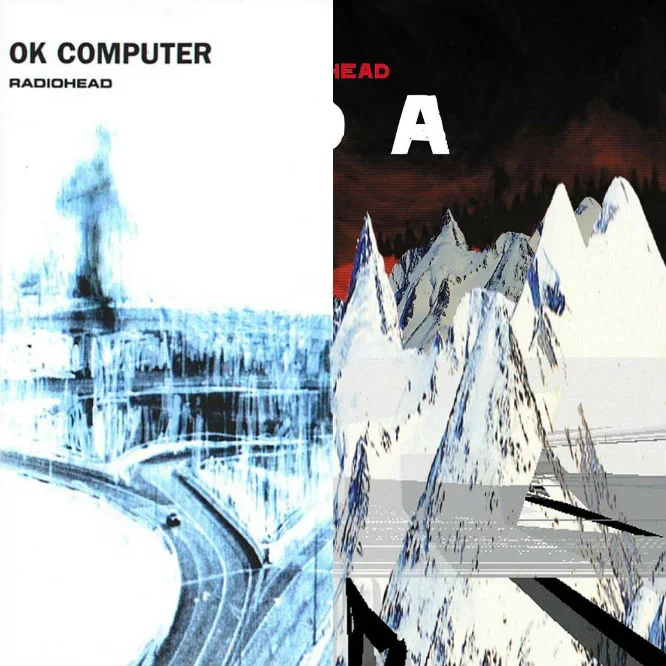Episode 1: What do Radiohead and their masterpiece Kid A have to do with Leadership?
A lot. I mean: A LOT.
When Radiohead released Kid A in 2000, most fans were baffled. Instead of continuing the journey after OK Computer, an album that had already redefined what rock could be and become in the decade to come, they chose to dismantle their sound using a bazooka and start again. Like a Phoenix bird, but one that had to burn itself down before it could rise.
OK Computer was visionary. It expanded the vocabulary of music in the late 90s. But as Steven Hyden notes in his book This Isn’t Happening, after OK Computer's never-ending tour, Thom Yorke wanted to “disappear completely”, and the band wanted to deny what they had just created. They felt an urge to replace organic instruments with electronics. They had to deny GUITARS, which were not only core in their previous 3 albums but in positioning them as a band of cult.
That pushed them to make really tough decisions: From twisting and processing sounds until they no longer resembled what they were meant to be, to challenging what they knew about harmony and musical theory. They had to learn how to play new and old instruments, like the Ondes Martenot. New skills: Johnny Greenwood even learned to weld, just to keep their old transistors alive for the experiments. They had to really open their mind and suspend disbelief. But, most importantly, they had to define a process to keep them sane, to test and play as much as possible, but to deliver an album the world was impatiently waiting for: the follow-up to OK Computer.
Throughout this process of over 1 year, at times, they nearly gave up. Recording Kid A was a real stress test for them individually and as a band. They were so fractured as a band that they almost split.
And yet, they didn’t. Out of that denial, out of that chaos, out of that search, out of that tension, Kid A was born.
It was not a step back. It was a step into the unknown.
Friedrich Schiller wrote in his book Kallias or Concerning Beauty: Letters to Gottfried Körner: “Don’t judge too early. Let your imagination play. Postpone the verdict of reason.”
That’s exactly what Radiohead did. And that’s what leaders often forget.
We think leadership is about having the answer fast, about projecting certainty.
But the most visionary leaders do something different:
• They suspend judgment to allow new -sometimes crazy - ideas to surface.
• They embrace the discomfort of ambiguity, even if that means denying previous successful formulas -> "what brought us here won't necessarily bring us there"
• They have a process, trust it and stick to it, knowing clarity comes after focused effort sustained over a period of time, yet they know when enough is enough.
• They are not afraid of making decisions, even when these are not evident and might bring backlash, as long as they believe that's the right thing to do.
In Leadership, as in art, playing it safe is the real risk. Creativity and boldness aren’t luxuries. They’re survival.
If Radiohead had played it safe, they’d have remained the band of OK Computer. Brilliant, yes, but bound to their past. Because they didn’t, they became the band of Kid A. Or better said: they became the band that anticipated the shifts not only in the music industry but, in some ways, in the world of the 21st century. And with it, they became the band of the future.
👉 So here’s the question: Where in your leadership are you clinging to OK Computer when what you need is a Kid A?




